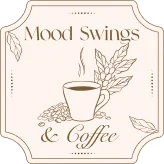- Some days I wake up ready to conquer the world. Or at least the laundry.
- But five minutes into folding my kid’s 18 pairs of identical leggings, I’m wiped out and wondering if a nap counts as productivity.
- And THEN I still have to pick between cooking dinner or taking a shower.
(Both? LOL. You must be new here.) - Now, I know there are those magical creatures (let’s call them functioning adults) who might say, “Just do both! It only takes a minute to toss laundry in. Hop in the shower while it runs. Toss something in the oven, bam, multitask!”
- To those people I say:
✨Congratulations on your TED Talk. Now please come do my chores.✨
When Your Brain Is Running on Dial-Up
- I used to ask myself that all the time.
I’d call my husband mid-meltdown, already spiraling from guilt:
“Can you grab something for dinner on your way home? I’m just… I don’t know, exhausted? I didn’t even do anything today.” - The shame was loud. I mean, I’m a stay-at-home mom. The word “stay” is literally in the job title.
Why couldn’t I manage what every other mom on the internet seemed to be doing in matching outfits with zero clutter and daily green smoothies?
Why was it so hard to be… normal?
(Also, side note: how the hell does anyone have the energy to both shower and make dinner in the same day? I need answers.) - Even worse, I didn’t know how to explain it to my husband. He’s kind, patient, supportive — all the right things. But when you’re running on fumes and your only accomplishment for the day is not crying in front of the Amazon guy, words fail. And then the guilt sets in. The shame. The “I’m broken” feeling.
- That’s when I discovered…
The Spoon Theory (aka My Emotional Currency Exchange)
- Originally coined by Christine Miserandino to explain what living with chronic illness feels like, the Spoon Theory goes like this: You start each day with a limited number of spoons. Every little task—getting dressed, making lunch, interacting with other humans—costs you a spoon. And when you’re out? You’re done. Not in a “take a quick break and you’re good” way. I mean game-over, body-quit, brain-fried kind of done.
- Although this was made to explain physical chronic illness, it translates beautifully to mental health. Depression, anxiety, bipolar disorder—all of them sneak in and steal spoons when you’re not looking. Sometimes I wake up with just two. And brushing my teeth already took one.
- Living with bipolar disorder means that some days I have three spoons, and brushing my teeth already took one.
That’s where the Spoon Theory comes in (thanks, Christine Miserandino!). It’s this handy way of explaining how people with chronic illnesses (yes, mental counts!) only get a certain number of spoons (aka units of energy) per day. - And once you’re out? You’re out.
No refills. No reboots. Just a pile of laundry quietly judging you from the corner.
What Helps Me Stretch My Spoons (and Not Lose My Mind)
- Because no, I can’t magically make spoons appear (trust me, I’ve tried caffeine and manifesting and screaming into the void). But I have figured out a few ways to stretch what I have:
- Microwins: If all I did today was take a shower and remember to eat, I’m calling that a win.
- Outsourcing dinner guilt-free: Frozen pizza? Ordered tacos? Husband brings home Chinese? Yes, yes, and yes. Nourishment over shame.
- Color-coded to-do lists: I use a traffic light system: Green = low energy, Yellow = medium effort, Red = full-blown adulting. I only aim for 1 red a day (and sometimes not even that).
- A designated cry blanket and TV show: When spoons run out, I don’t spiral. I burrito. Grace looks like binge-watching Grey’s Anatomy for the fifteenth time while pretending I’m not actively disassociating.
- Honest convos with my people: “Hey, I’m out of spoons. It’s not personal, I’m just mentally bankrupt today.”
- And most importantly, I’ve learned to extend grace to myself when my energy doesn’t match the unrealistic expectations in my head. Just because other people are running marathons or organizing closets doesn’t mean I have to. Some days, breathing and existing is the win.
- Moral of the Story…
- I’m doing the best I can with the spoons I have.
And if that means dishes tomorrow, laundry next week, and dinner being a cup of ramen tonight?
So be it.

Read More (When You Have a Spoon to Spare):
- But You Don’t Look Sick – Spoon Theory Origin Story by Christine Miserandino
- Burnout: The Secret to Unlocking the Stress Cycle by Emily and Amelia Nagoski —
game-changer for spoon protection
Let’s Chat:
- What do YOU do when your spoon drawer is empty?
- Drop your stories, your wins, or your favorite “dinner in a depression” recipe in the comments. I’ll read them while laying in a blanket burrito on my bed.

